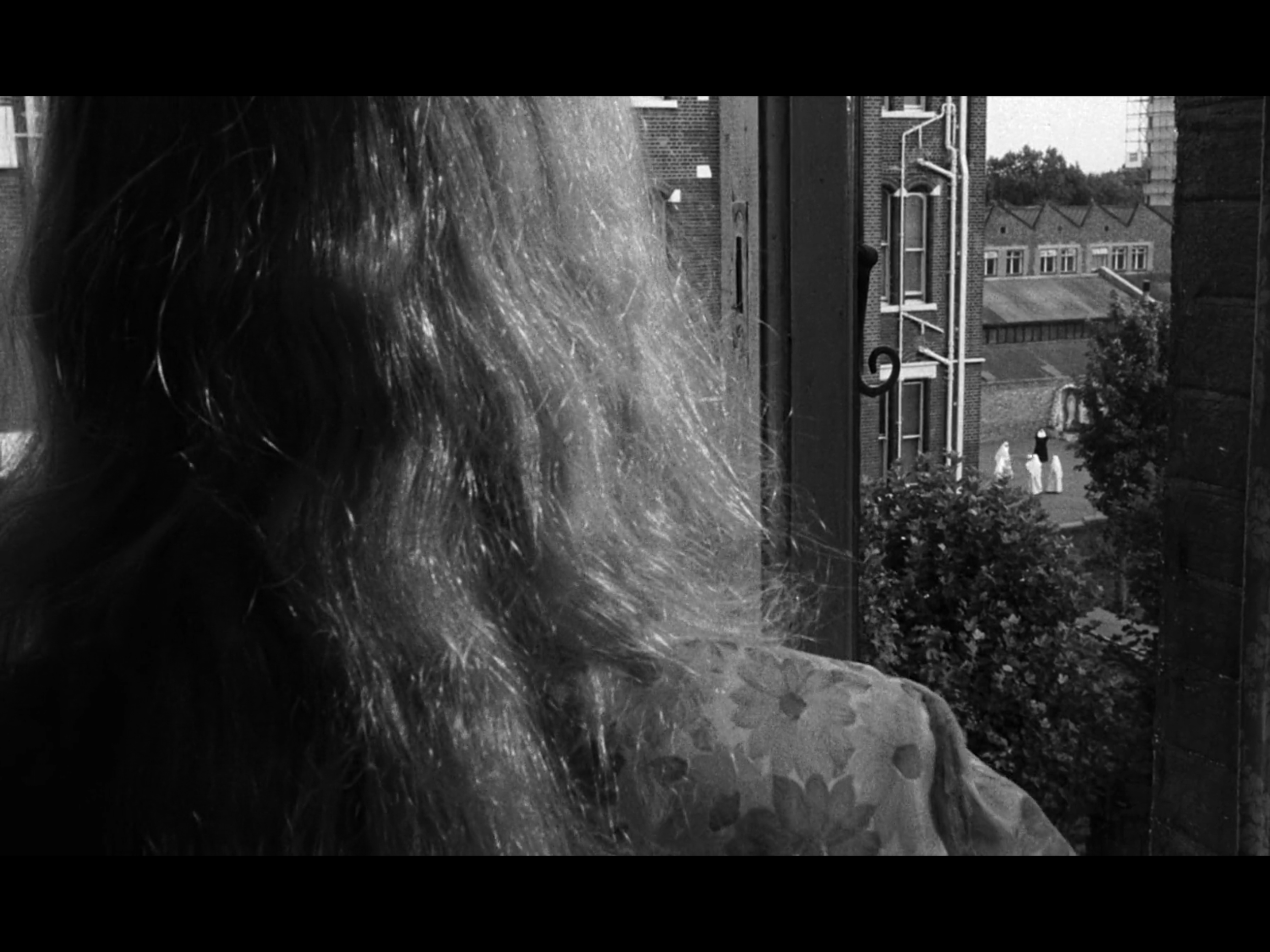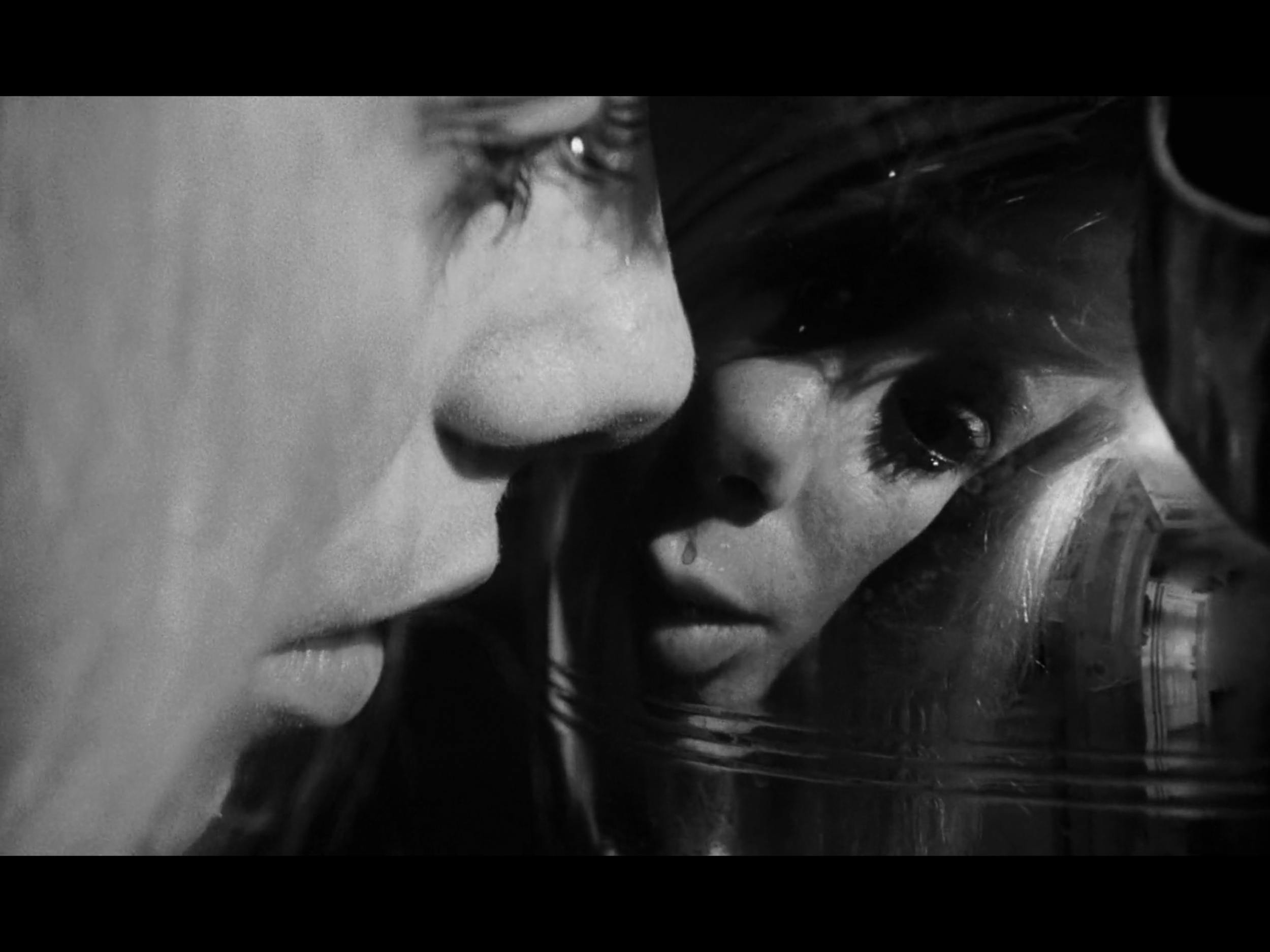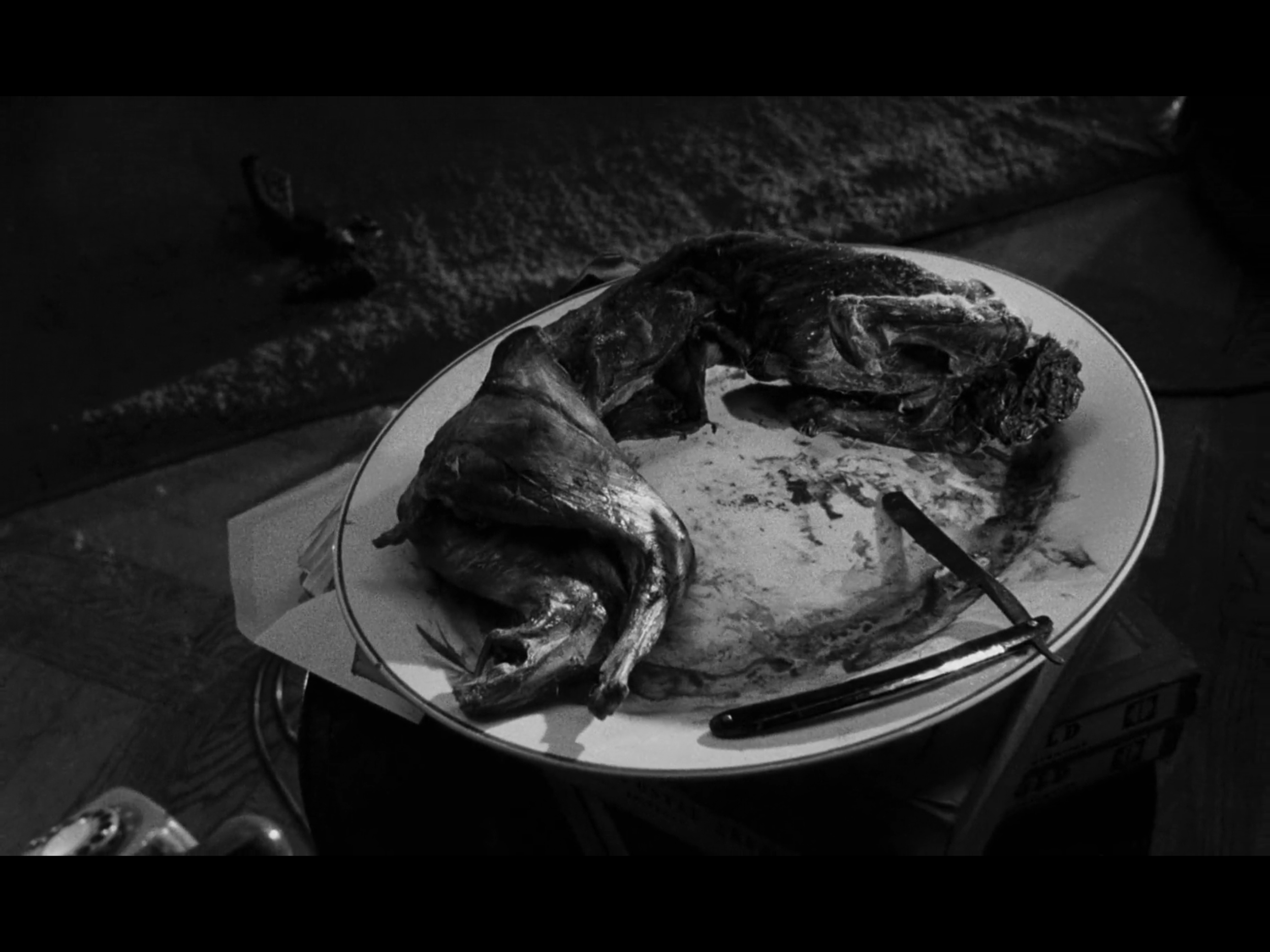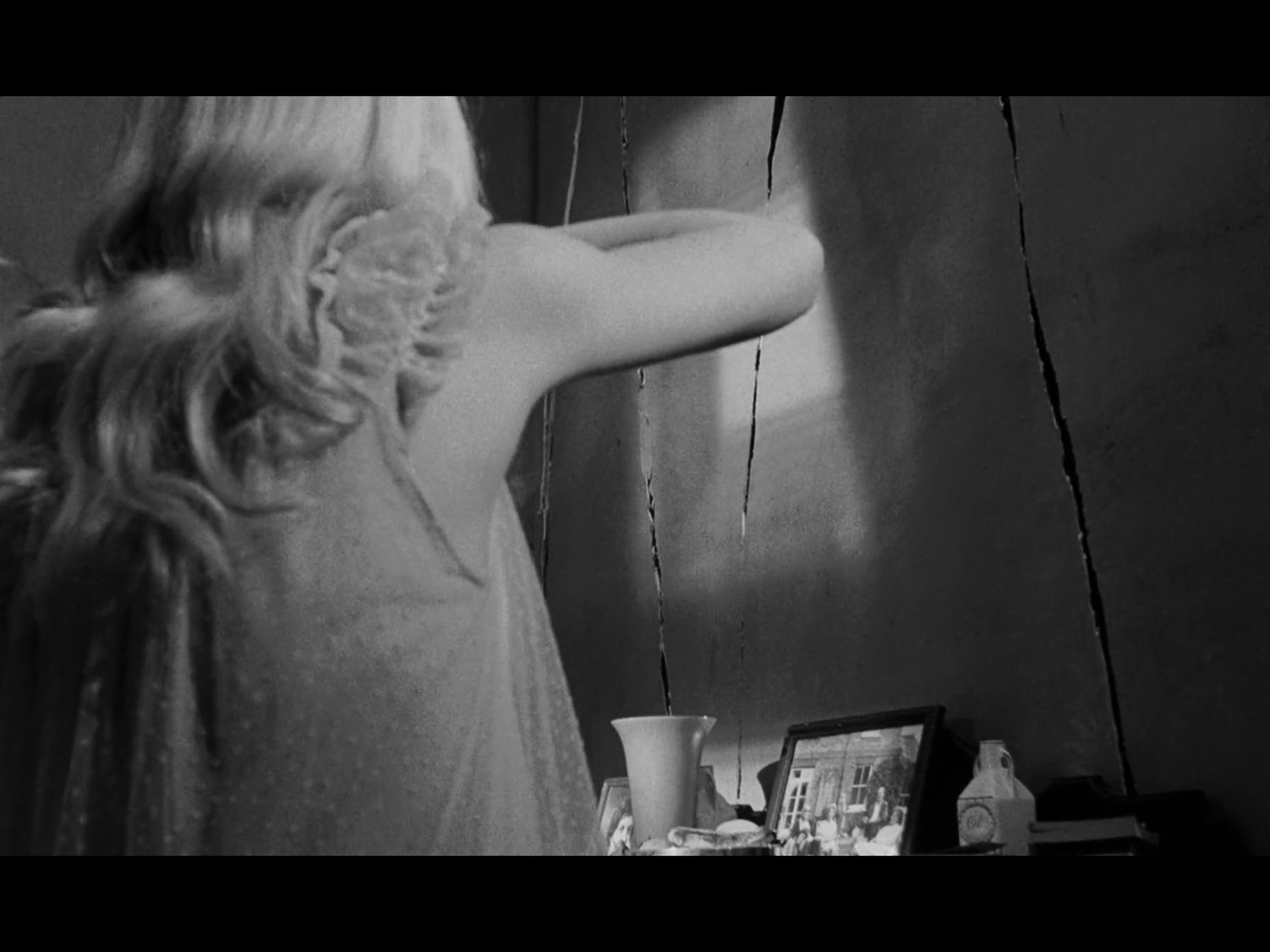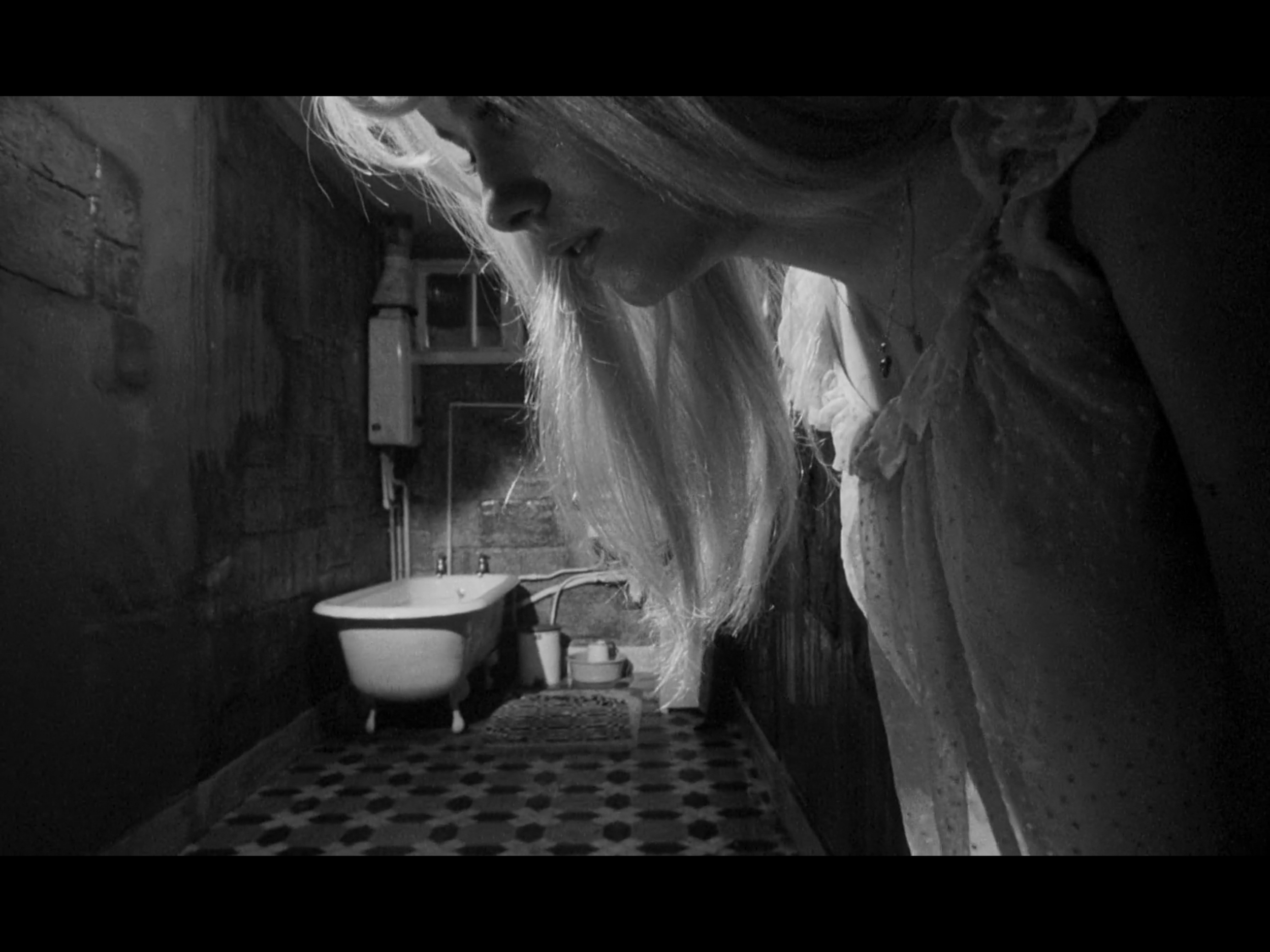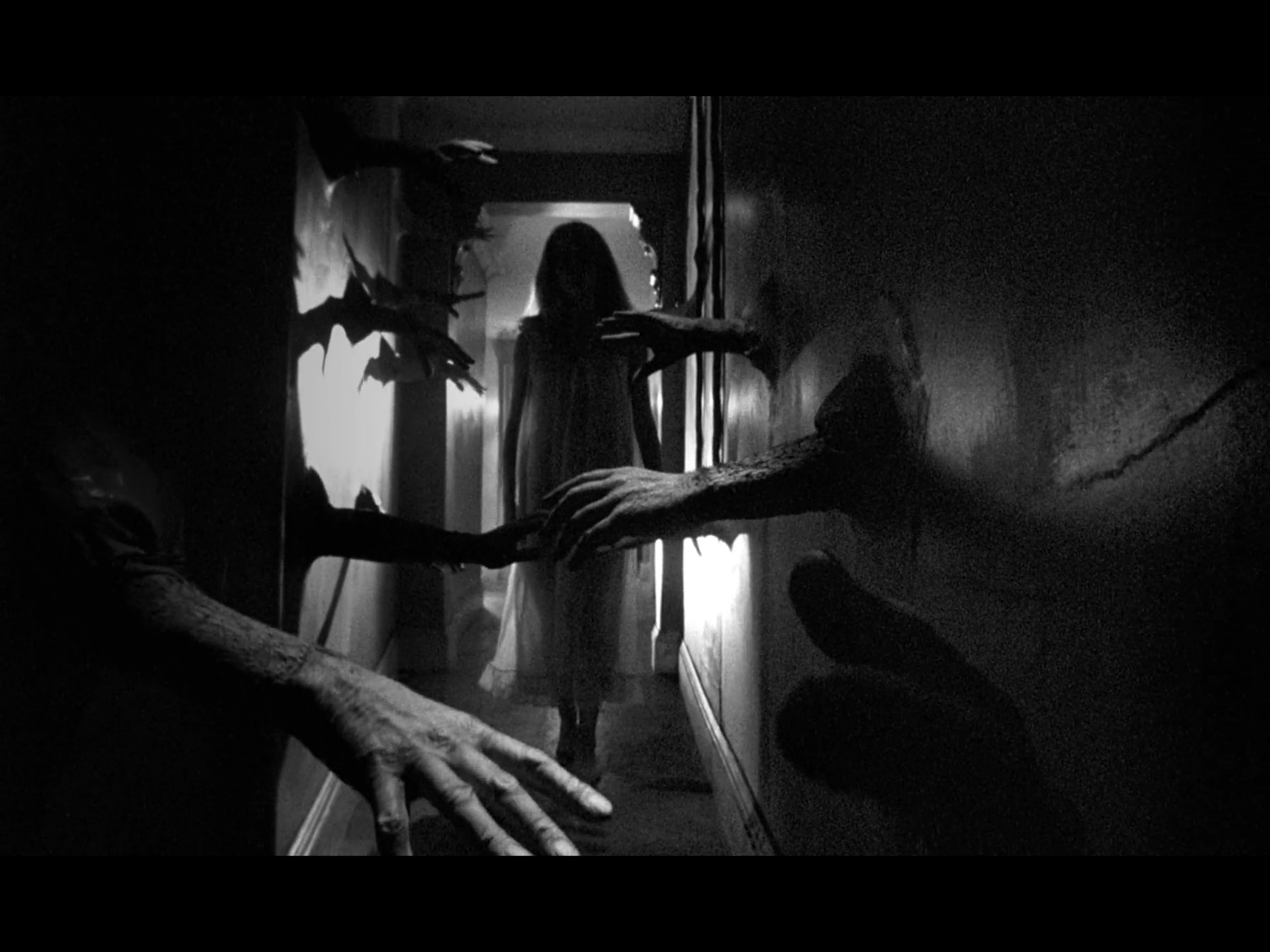Repulsion (1965)
Few films burrow into the psychology of mental illness with the unflinching intensity of Roman Polanski's "Repulsion.” In this masterwork of psychological horror, Catherine Deneuve plays Carole, a beautiful young manicurist from Brussels whose descent into madness is captured with such precision that we feel trapped within her deteriorating mind. In fact, the apartment itself seems like both a literal and metaphorical for this isolation.
Gilbert Taylor's cinematography, which would later grace "Star Wars" and "The Omen," here achieves something remarkable: making ordinary spaces feel increasingly threatening. His wide-angle, deep-focus shots transform Carole's London apartment into a labyrinth of horrors, while his cinema verité street photography grounds the film in a harsh reality that makes the psychological elements even more disturbing.
The genius of "Repulsion" lies in its methodical accumulation of detail. A ticking clock becomes a heartbeat of dread. Cracks spider-web across walls like fissures in Carole's psyche. A rotting rabbit, forgotten in the summer heat, decomposes in perfect parallel with our protagonist's grip on reality. These aren't merely symbolic flourishes, they're the building blocks of Carole's private hell.
Polanski creates a world where every male presence feels like an invasion. The catcalls Carole endures on the street, her sister's audible lovemaking, even the simple presence of a man's razor in her bathroom, all become weapons in an assault on her fragile psyche. The film never explicitly explains the source of Carole's repulsion toward men, but a haunting final shot of a family photograph suggests childhood trauma lurking in her past. Deneuve's performance is a miracle of subtle disintegration. She doesn't play madness, she lets it slowly possess her. When she finally erupts into violence, it feels both shocking and inevitable.
What elevates "Repulsion" above a genre piece is its unwavering compassion for its protagonist. This isn’t an exploitation film, it's a serious study of mental illness wrapped in the language of horror cinema. The haunting flute melodies, the religious imagery of nuns and church bells, even the seemingly mundane interactions about food, all contribute to a portrait of a woman not evil, but tragically ill.
"Repulsion" was groundbreaking in its portrayal of a female killer, but its real achievement is making us understand, even empathize with, its protagonist's descent into violence. It's a landmark of psychological cinema and even after more than five decades it remains profoundly disturbing and deeply human.

